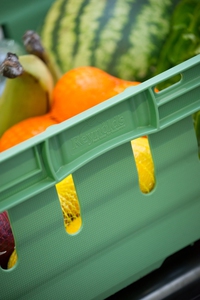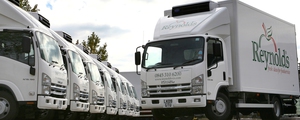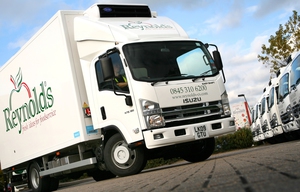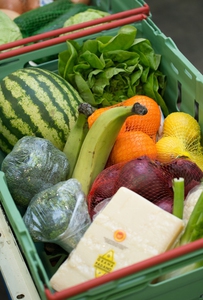

|
Edward Lowton
Editor |


|
| Home> | Handling and Storing | >Storage and containers | >Delivering savings |
Delivering savings
30 July 2013
Reynolds supplies more than 2500 varieties of fresh and chilled produce to some of the most famous names in food service and has implemented a reusable transit packaging (RTP) crate scheme from Schoeller Allibert, to reduce waste and keep produce fresh.
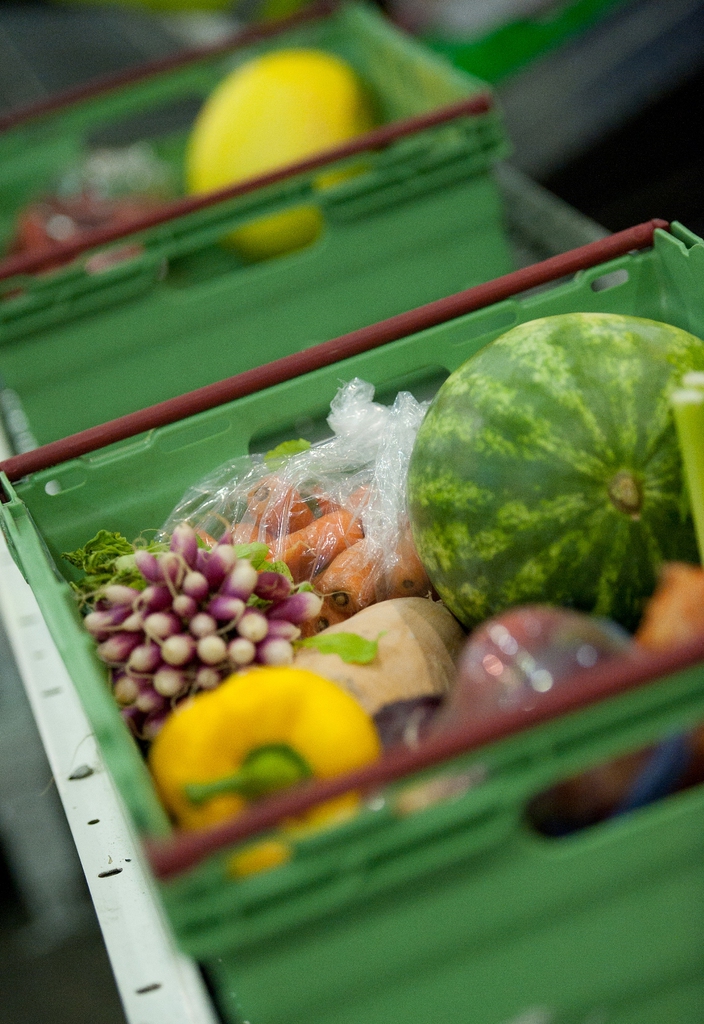
As a result, Reynolds estimates that over the last year it has sent out 750,000 fewer cardboard and wooden boxes to customers and saved hundreds of tonnes of cardboard and paper.
Reynolds reports that, so far, more than 1000 customers have switched to deliveries with Maxinest crates, which have an average lifetime Product Carbon Footprint of just 26kg CO2e for each crate.
Glen Collins from Reynolds explains: "The food service industry uses millions of cardboard and wooden boxes for delivering fresh produce to customers and we all need to take responsibility for reducing this. By implementing this scheme with Schoeller Allibert, we have already saved hundreds of tonnes of cardboard each year and now use around 80,000 Maxinest trays. These are washed between uses with a state of the art system designed to ensure the most efficient and therefore, environmentally friendly use of water. Because they are stackable containers, the Maxinests also help to ensure we are optimising vehicle fill for efficient use of our delivery vehicles.”
Reynolds prides itself on the freshness of its produce and offers temperature control from farm to kitchen. In addition to reducing cardboard waste, using the Maxinest containers helps to improve product cooling, and protects produce in transit.
